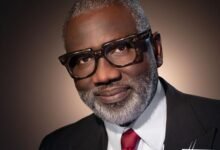Is the teacher’s work all about teaching?
Teachers rely on high standards of professionalism in knowledge, conduct and in practice to inspire and to challenge students to achieve their potentials in life (National Teachers’ Standards for Ghana Guidelines, 2017, page 6).
Teachers are knowledgeable professionals. It is, however, not to say that the teacher is all-knowing or an embodiment of all knowledge. Being resourceful means that the teacher has an updated, refined knowledge on what to teach and on educational policies and programmes. The teacher is endowed with the knowledge in guiding students, learners through lessons and in facilitating the acquisition of learning experiences in an engaging, impactful and holistic manner. Aside of the knowledge in the subject matter or in the lessons to teach to learners, the teacher demonstrates a high degree of familiarity with the policies and programmes guiding an education system and helps to implement effectively the official school curriculum towards achieving positive, useful learning outcomes (National Teachers’ Standards for Ghana Guidelines, 2017).
The teacher ought to have full command on verbal and non-verbal, written communication to enable the presentations of lessons and learning experiences to occur even beyond what is found in the curriculum and in textbooks. The teacher aptly identifies some gaps in learning and works with students, learners to get those gaps knitted using approaches like self-study, project-based or enquiry-based learning (National Teachers’ Standards for Ghana Guidelines, 2017, page 22).
The teacher is an indispensable vessel of good conduct to students. The teacher acts as a role model and gives guidance on morality and decent living. Page seven (7) of the Code of Conduct for Staff of the Ghana Education Service (2017) stressed on the need for teachers and staff in schools and in institutions to exhibit various forms of conduct for learners to emulate, including but not limited to leadership, selflessness, comportment, integrity, impartiality, fairness, and honesty. The teacher is a role model to learners by being highly decent in speech, mannerism, discipline, and in dressing to be in line with the work and status of the teaching profession and for improved learning outcomes (Code of Conduct for Staff of the Ghana Education Service, 2017, page 26). Teachers, for example, adopt servant leadership (or leadership by example) in such activities as desilting school drains and in undertaking farming activities in school gardens, as a form of project-based learning, where teachers demonstrate to learners how simple tools like shovel, spade, cutlasses and hoes are used to desilt drains and to control weeds on farm lands.
The teacher recognises the uniqueness and abilities of all individuals and does everything within the ambit of the teaching profession and of human learning to respect all learners, regardless of socio-economic and cultural backgrounds, gender, and of geographical locations. The teacher ensures that the school is made conducive, protective and safe for learning to take place. The school, as a learning space, ought to be an enabling, engaging environment for learners to feel at easy to discuss, share knowledge among themselves with the teacher as the lead facilitator. No teacher can subject learner(s) to exploitative labour, violence (i.e., physical, or psychological, or sexual violence), discrimination, favouritism, among other forms of unfair treatment, and cannot promote same (Code of Conduct for Staff of the Ghana Education Service, 2017, pages 15-26).
The change of the name, Ghana Teaching Service, to Ghana Education Service is enough to explain the multi-faceted role of the teacher on learners and on society, which goes beyond just teaching. It is a fact that teachers teach or facilitate learning, and it stands also that the teacher’s work goes beyond teaching. The teacher is endowed with the values, attitudes, knowledge and pedagogical skills to teach, guide, counsel, mentor and to act as a facilitator, coach, motivator, leader, friend and a disciplinarian. The teacher does not only serve students but other interested persons also, including parents. The name, “classroom teacher”, or “school teacher” is, therefore, incorrect. The teacher’s role is beyond the classroom and school into the local community, country, or even the continent and globe in which the school resides. The teacher has forums such as Parent-Teacher Association meetings, School Management Committee meetings, School Governing Board meetings (through teacher representatives on the Boards) and public gatherings to remind parents and other stakeholders of what they can offer to promote education. The teacher relies on imaginative skills of using instructional resources like drawings, diagrams and ICT tools, as well as useful analogies, metaphors and narratives to stimulate learning and to seek the stakeholder support for education (National Teachers’ Standards for Ghana Guidelines, 2017). The teacher can decently use mass media like radio, television, and print media to facilitate learning and to lead talks on what students and stakeholders can do together to promote learning. An Agriculture teacher, for example, can liaise with an agricultural extension officer to educate and guide farmers in the local community on the right way of applying manure to crops.
The writer is an educationist, trained counsellor in the Ghana Education Service and a visiting lecturer of the College for Distance and e-Learning of University of Education, Winneba
BY ANTHONY KWAKU AMOAH (MPHIL)




